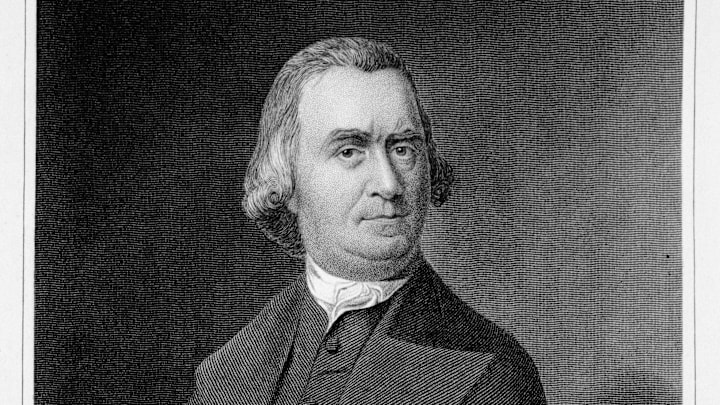His name comes up in lots of conversations about beer, but Samuel Adams was an American patriot and a huge influence on the Revolutionary War. Here are a few things you may not know about this founding father.
1. Samuel Adams came from a prominent family.
The Adams clan was a very politically active family in Boston; John (destined to become the second president of the United States) and Samuel Adams were second cousins. The family was also very large: Samuel was the 10th child out of 12. Unfortunately, only two siblings survived past childhood.
2. Adams’ education was paid for with flour and molasses.
Adams spent his time at Harvard learning law, philosophy, and Latin. His mother did not want her son to be a lawyer and discouraged the pursuit. Instead of choosing law, the fresh graduate decided to try apprenticing as a merchant, but found he did not have a head for business and quickly abandoned it— his real calling was politics.
3. His father was a founding member of the Boston Caucus.
The Boston Caucus was a political organization that helped spark the American Revolution. The group had enormous sway in government and would often handpick political figures— Boston Caucus-favored candidates rarely lost. Samuel Adams was an active member of all the various branches. The group also worked closely with the Loyal Nine and Sons of Liberty, other patriot organizations.
4. Sam Adams didn’t brew beer.
Despite popular belief, the Founding Father never brewed beer. He did, however, work for his father’s malt house. The business simply made malt that was then sold to breweries. After his father passed away in 1748, Adams took over the family business. Opponents would use this information to tease Adams, and call him a “maltster.”
5. He was not great at being a maltster.
Unfortunately for the malt company, Adams still wasn’t much of a businessman and instead gave the majority of his attention to politics. The malthouse closed shortly after he took over.
6. He wasn’t very committed to being a tax collector, either.
From 1756 to 1764, Adams worked as a tax collector. As tax rates mounted, it became more difficult for colonists to foot the bill. Ever the ally of the underdog and always a poor businessman, Adams decided to look the other way. By not collecting debts, Adams earned the undying affection of taxpayers, even when the government ran out of money.
Political opponents tried to use the deficit as a means to discredit Adams. Eventually, his friends ended up paying off the majority of the shortfall, while a town meeting cleared away the rest. It was decided that the uncollected debts were unavoidable, and Adams’ reputation emerged relatively unscathed.
7. He wasn’t great at sticking to a budget.
Adams’ financial struggles weren’t limited to his professional life as a tax collector and malthouse operator—he struggled to manage his own money as well. As such, his family was often on the brink of poverty. Thankfully, his second wife, Elizabeth Wells, was resilient and found creative ways to keep the home comfortable with a low income.
8. He started his own newspaper.
Adams and his friends started a newspaper called the Independent Advertiser in 1748. The publication consisted of anonymous essays written about colonial politics. Adams’ own writing was heavily influenced by John Locke and argued for reform in government.
9. He was called the “Father of America.”
Although he usually wasn’t the leader or at the top of the chain of command, Adams was often chosen to be rebellious colonists’ spokesperson. He was not very attractive and had a weak voice, but was said to move audiences by sheer intelligence and passion. Despite his unglamorous disposition, after the Boston Tea Party the city celebrated him as hero. Thomas Jefferson called him “truly the Man of the Revolution.”
10. He might not actually be the man on the beer label.
Although a popular beer shares his name, it may not share Adams’ face. Adams grayed at an early age, dressed sloppily, and had dull, washed-out eyes. John Adams once described him, "in common appearance he was a plain, simple, decent citizen, of middling stature, dress, and manners.” In other words, not exactly a looker!
11. The grave of Samuel Adams is viewed more than any other American patriot.
This has more to do with geography than popularity. The simple metal disk marking his resting place is smack in the middle of Boston’s Granary Burying-Ground; you can peer through the fence to see it. Since the graveyard is in such a central location, and you can view the grave without leaving the curb, many tourists can see it as they walk by.
